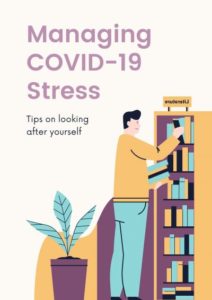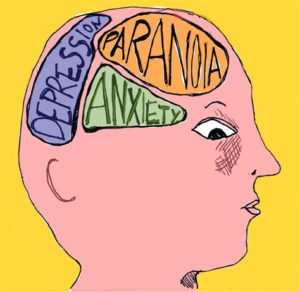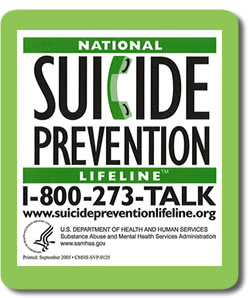 2020 has been a long, stressful year. January brought us the “novel Coronavirus,” though it didn’t become “real” for most of us until March. We were asked to make adjustments to our work, school and personal lives; some large and some small. Since then, the news has been full of non-stop “doom and gloom” stories.
2020 has been a long, stressful year. January brought us the “novel Coronavirus,” though it didn’t become “real” for most of us until March. We were asked to make adjustments to our work, school and personal lives; some large and some small. Since then, the news has been full of non-stop “doom and gloom” stories.
Currently, public health experts are asking us to give up at least some of our winter holiday traditions. We are warned that large family gatherings might be “superspreader events.” The news has been full of reports of Labor Day and Memorial Day gatherings, Halloween parties, and even Canadian Thanksgiving gatherings causing COVID clusters; some of which resulted in deaths. Visiting grandma for the holidays, we are told, might literally kill her!
And as if all of this wasn’t enough, we are also dealing with the leftover anxiety of the election and the annual cold and flu season, at the same time that grey skies and cold weather forces us inside for the winter.
 All of that stress is having negative effects on our physical and mental health. Surveys show a major increase in U.S. adults reporting symptoms of stress, anxiety, and depression. In a recent survey, 41% of adults reported at least one adverse mental or behavioral health condition. Nearly 11% reported having seriously considered suicide in previous 30 days. Some have increased their use of alcohol, marijuana or other drugs, thinking that can help them cope with their fears. In reality, these substances can worsen anxiety, depression and sleep problems.
All of that stress is having negative effects on our physical and mental health. Surveys show a major increase in U.S. adults reporting symptoms of stress, anxiety, and depression. In a recent survey, 41% of adults reported at least one adverse mental or behavioral health condition. Nearly 11% reported having seriously considered suicide in previous 30 days. Some have increased their use of alcohol, marijuana or other drugs, thinking that can help them cope with their fears. In reality, these substances can worsen anxiety, depression and sleep problems.
Stress can also worsen physical health condition, such as obesity, heart disease, Alzheimer’s disease, diabetes, gastrointestinal problems, asthma, and even cancer. Stress can also affect children’s growth and development, including the onset of puberty and other developmental milestones.
it is important to know that stress is perfectly normal. In fact, if not for stress, we would never get anything done. Everyone reacts differently to difficult situations, and it is normal to feel stress and worry during a crisis. But multiple challenges daily, can push us beyond our ability to cope.
 Stress is cumulative. Imagine a stack of books on a table. One book – even an exceptionally large one – is not necessarily a problem. But if you continue to add more, the pile will eventually grow too heavy. We don’t know which one – maybe even just a little pamphlet – might cause them to tumble to the floor!
Stress is cumulative. Imagine a stack of books on a table. One book – even an exceptionally large one – is not necessarily a problem. But if you continue to add more, the pile will eventually grow too heavy. We don’t know which one – maybe even just a little pamphlet – might cause them to tumble to the floor!
But there are some things we can do.
First, we can turn off the news, including social media. Regardless of the sources on which we rely, all news channels rely on one thing: FEAR SELLS. One story after another is meant to scare us. Read a book. Watch a “rom-com” or old episodes of a favorite TV show. Play board games with your kids. Anything but watching hour after hour of coverage of the scary things about which we can do little to nothing!
Make sure you and your kids get enough sleep and participate in regular physical exercise. Eat healthy. Avoid tobacco, alcohol, and other drugs (even prescribed drugs can be problematic). Limit screen time and remember to set aside time for yourself to relax and recharge.
Maintain a regular schedule for yourself and your family. Get up and go to sleep at the same time every day. Have a set schedule for meals, bathing, dressing, work or school, and exercise. Make sure you don’t stop doing the things you enjoy. When we feel depressed, sometimes we don’t “feel like” doing even our favorite activities!
Avoid social isolation. Even if you must stay home, make connections with other people Find time each day to make virtual connections by email, texts, phone, Zoom or similar apps. If you are working remotely from home, ask your co-workers how they’re doing and share coping tips. Enjoy virtual socializing and talking to those in your home.
Despite your best efforts, you may find yourself feeling helpless, sad, angry, irritable, hopeless, anxious or afraid. You may have trouble concentrating on typical tasks, changes in appetite, body aches and pains, or difficulty sleeping, or you may struggle to face routine chores.
When these signs and symptoms last for several days in a row, make you miserable and cause problems in your daily life so that you find it hard to carry out normal responsibilities, it’s time to ask for help. Be upfront about how you’re doing. To get help you may want to:
 Call or use social media to contact a close friend or loved one — even though it may be hard to talk about your feelings.
Call or use social media to contact a close friend or loved one — even though it may be hard to talk about your feelings.- Contact a minister, spiritual leader or someone in your faith community.
- Contact your employee assistance program, if your employer has one, and get counseling or ask for a referral to a mental health professional.
- Call your primary care provider or mental health professional to ask about appointment options to talk about your anxiety or depression and get advice and guidance. Some may provide the option of phone, video or online appointments.
- Contact organizations such as the National Alliance on Mental Illness (NAMI) or the Substance Abuse and Mental Health Services Administration (SAMHSA) for help and guidance.
- If you are feeling suicidal or thinking of hurting yourself, seek help. Contact your primary care provider or a mental health professional. Call the Idaho Suicide Prevention Hotline at (800) 273. -8255, or the National Suicide Prevention Lifeline at 1-800-273-TALK (1-800-273-8255).
If you have questions about the above, or need help dealing with your “COVID stress” or other issues, please give us a call at (208) 233-1276.